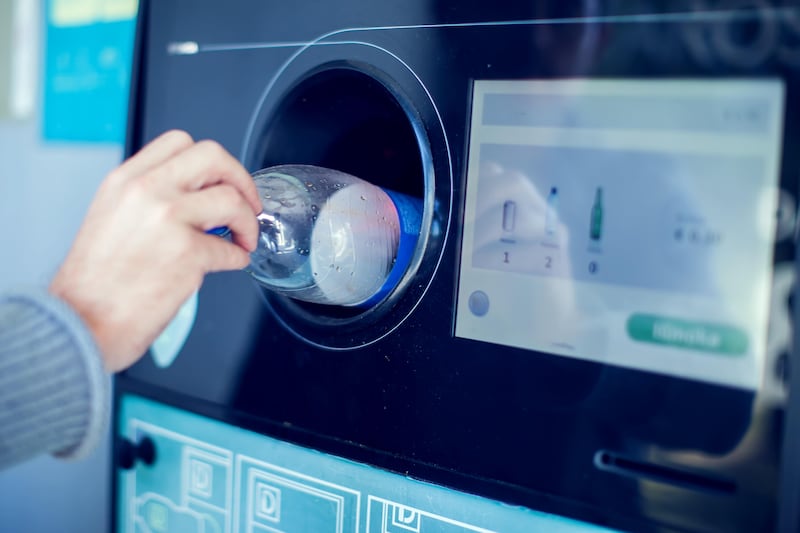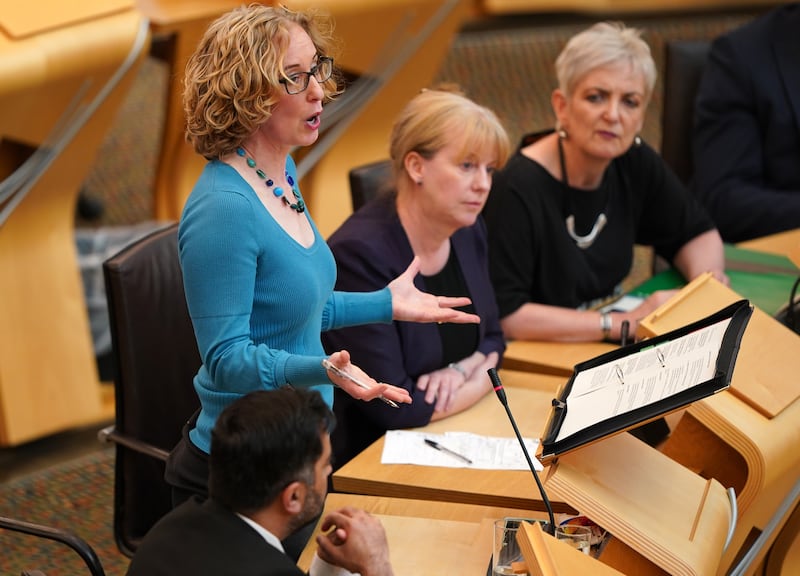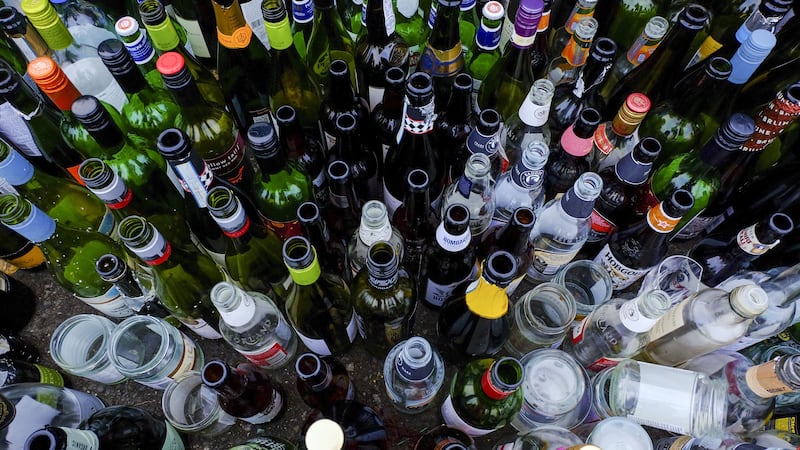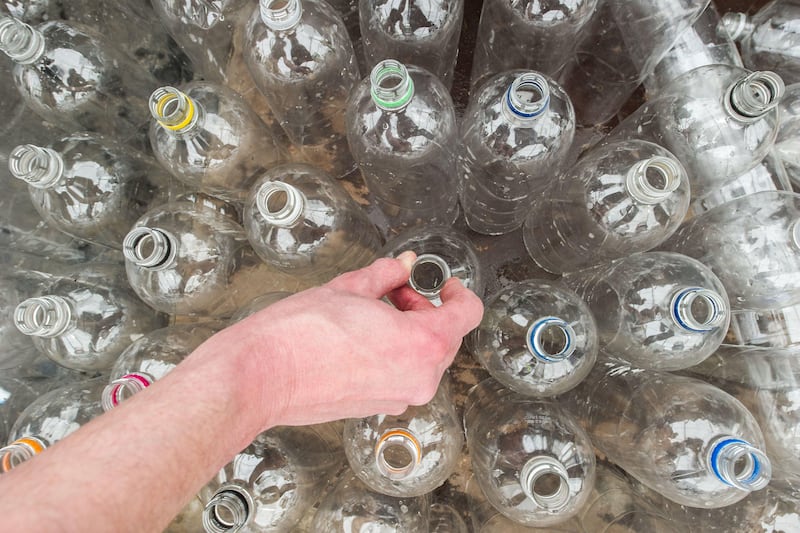Radical change is needed from policy makers if the drinks industry is to reduce emissions enough to meet 2050 net-zero targets, environment campaigners have said.
As well as improved recycling for containers such as cans, plastic and glass bottles, they said there also needs to be a “shift back to large-scale refillable options”.
The calls come on the back of a new report looking at the environmental impact of glass, PET plastic and aluminium drinks containers
The study, commissioned for Zero Waste Europe and by leading consultancy Eunomia, warned: “All three materials are projected to surpass their allocated carbon budget, with glass exhibiting the highest proportional exceedance.
“The beverage packaging sector in the EU as a whole is expected to exceed its total carbon budget.”
Without change, the report warned the sector could exceed its necessary level of emissions by as much as 150%.

It added that glass and PET are “significant contributors to this exceedance at +170% and +140% respectively”.
Kat Jones, the director of Action to Protect Rural Scotland (APRS), said the report put the demand for a deposit return scheme (DRS) “in a broader context”.
Scotland had been due to introduce such a scheme, but Holyrood ministers put it on hold after the UK Government ruled against the inclusion of glass as part of it.
The scheme could now come in alongside similar initiatives in other parts of the UK – with the Westminster Government having proposed an October 2025 start date for a DRS.
APRS has led the campaign in Scotland for deposit return, and Dr Jones said: “Preventing Scotland from using deposit return on glass bottles was a deeply counter-productive move by the UK Government, given it will remain the most polluting material in carbon terms, and the most dangerous when littered.”
But she added “deposit return is not enough, as this report shows” stressing that “without radical change from policy-makers, the drinks industry simply cannot reduce emissions enough by 2050”.
Simon Hann, principal consultant at Eunomia Research and Consulting and lead author of the report, said with regards to drinks containers, “it becomes evident that we need to adopt a more strategic approach to decision-making that takes into account future implications”.

He added: “Our findings indicate that justifying the continued use of single-use glass, in particular, will become progressively more difficult, despite the obstacles faced by alternative materials.”
Henry Swithinbank, policy and advocacy manager at Surfers Against Sewage, said: “It is possible to have a sustainable drinks industry, but, as the tens of thousands of littered items we find on our beaches each year show, we are nowhere near that point.
“Better recycling is only one half of the solution for our seas and our countryside.
“The aim should be a circular economy, shifting back to large-scale refillable options alongside efficient recycling through deposit return across all materials.
“Without both, the drinks industry will continue to waste energy and resources, litter our beaches and jeopardise climate targets.”
Laura Foster, head of clean seas at the Marine Conservation Society, said: “This report adds further weight to our recommendations to include glass in deposit return across the UK to reduce carbon impact.
“Single-use containers not only add to carbon emissions, but our volunteers regularly find broken glass pieces on beaches which pose a threat to marine life and beach-goers alike. Last year, 95% of UK beaches surveyed by our volunteers found drinks-related litter.”
Research from @KeepBritainTidy shows around 20 million drink containers are buried, burnt, or littered daily.
We've joined manufacturers, retailers, and environmental charities in writing to @RishiSunak in support of a #DepositReturnScheme
Letter➡️ https://t.co/vbgbJLKfcR pic.twitter.com/BpFEicWFmF
— APRS (@APRScotland) October 4, 2023
Jemma Bere, policy and research manager at Keep Wales Tidy, said her organisation is “very pleased the Welsh Government remains committed to glass in the proposed deposit return scheme for Wale”.
However she added: “Recent decisions by the UK and Scottish governments have delayed this ambition and will impact our efforts to become a sustainable, zero-waste nation.”
She stressed a “major expansion of refillables” coupled with the introduction of a deposit return scheme are “key mechanisms”.
Ms Bere said: “We know that these schemes are effective in reducing industry carbon emissions, increasing recycling efficiency and reducing litter.
“Further delays will only serve to jeopardise climate targets and our overall ambition in Wales for a greener and fairer future.”
Gavin Partington, director-general of the British Soft Drinks Association, said: “We strongly support the introduction of a deposit return scheme and continue to urge the Government to press ahead with the introduction of an interoperable DRS to help support a circular economy, reduce littering and increase recycling.”
The Department for Environment, Food and Rural Affairs (Defra) said it was “committed” to a deposit return scheme.
A Defra spokesperson said: “We are committed to delivering a deposit return scheme for drinks containers as quickly and effectively as possible to boost recycling, reduce plastic and canned litter, and promote a circular economy.
“Following consultation and subsequent industry engagement, in England, we believe including glass will add additional complexity to the introduction of DRS – particularly to the hospitality and retail sectors.
“Glass will instead be included in the scope of the extended producer responsibility for packaging regime to make sure it is properly and effectively recycled.”








